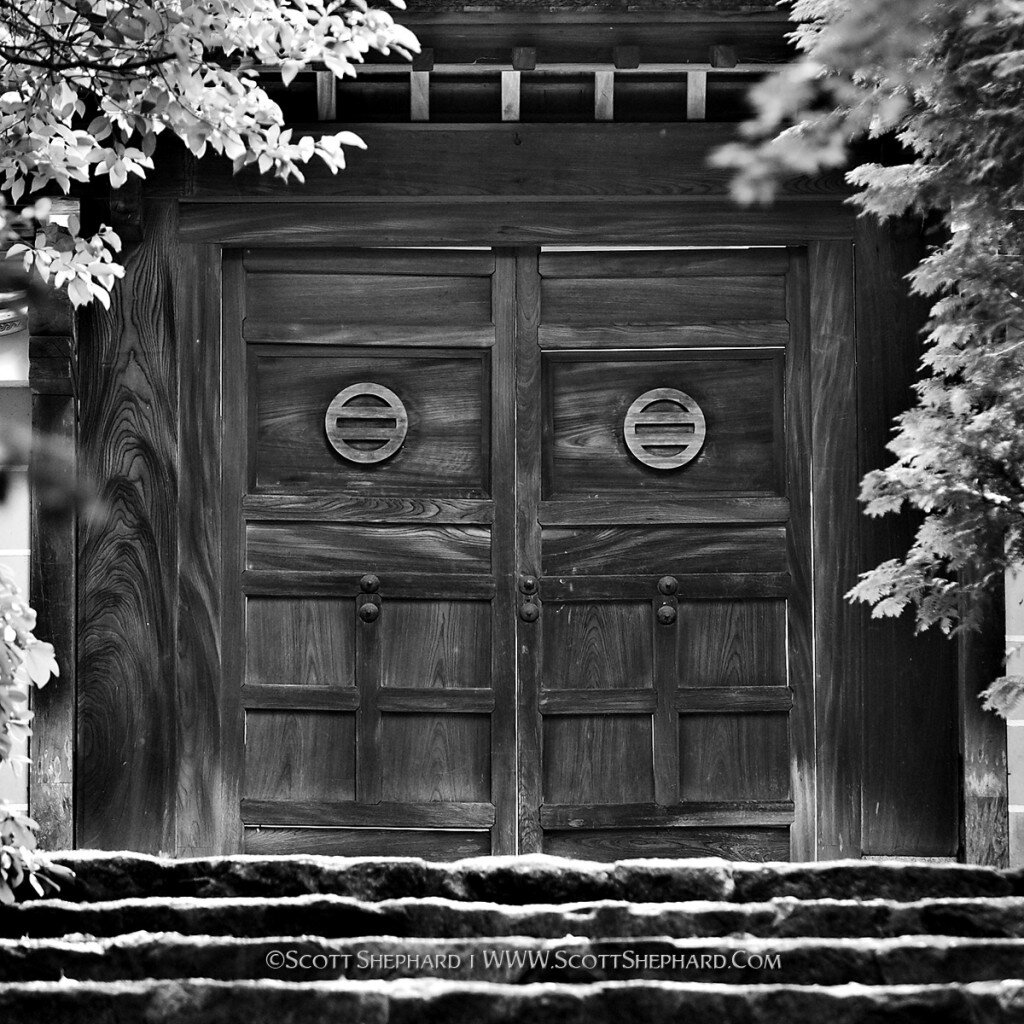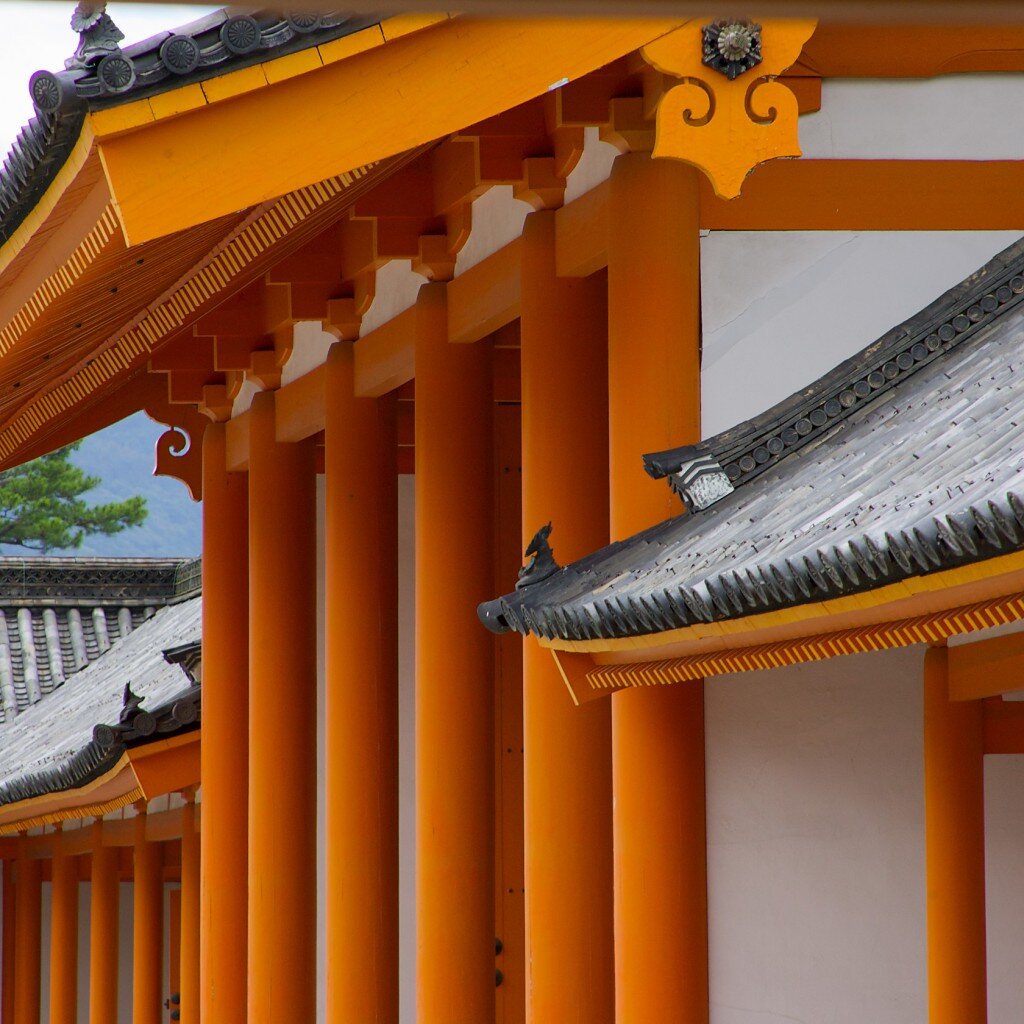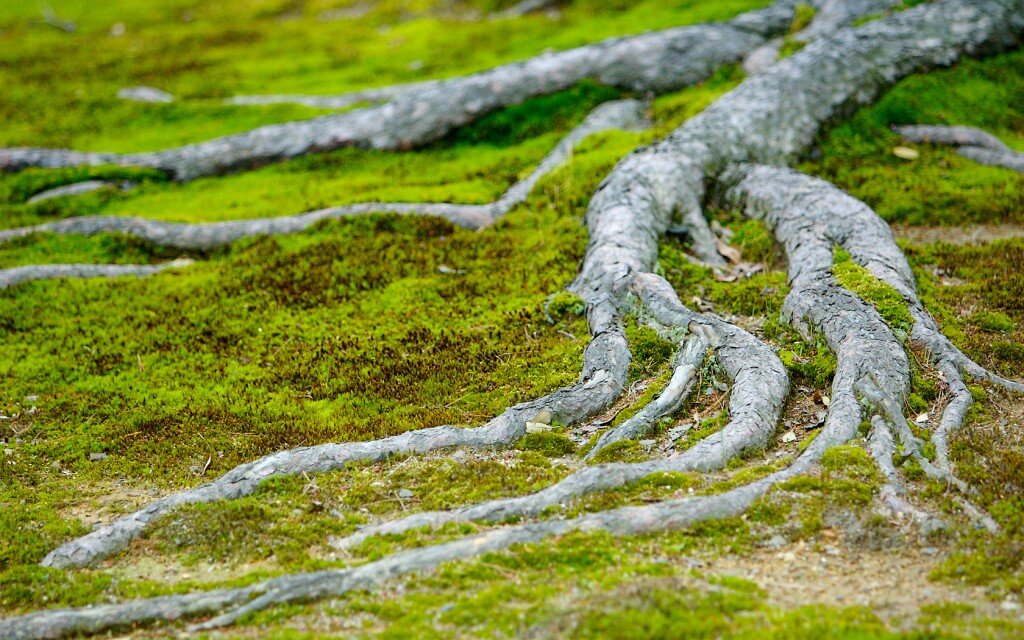What do Trump, the Atlanta Falcons and broken drones have to do with this tree in Japan?
Read MoreJapan
03-30-14 Curiosity (2004)
He peeks around the corner to get a better look at the American photographer. . . .
Read More02-09-13 Stone Lion
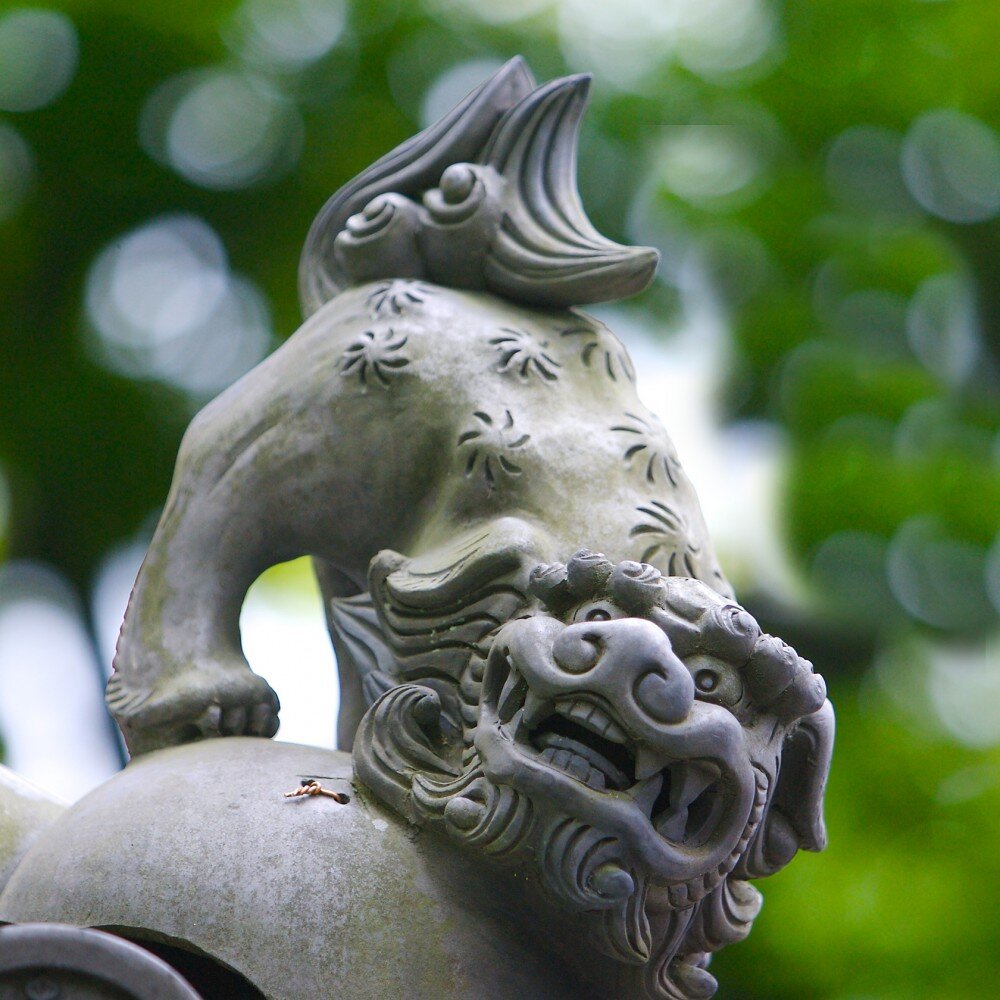 TS Eliot was wrong. Februrary, not April, is "the cruelest month." At least for me. Yes, the days are getting longer. Yes, the temperature ocassionally soars into the high 20s. But it is often in the heart of February that what I think is SAAD (seasonal affective disorder) hits me. And I lose my will to post new photos to this blog.So I'm posting old stuff. . . But, in the event that you haven't meticulously looked at all four years of my posts, you've probably never seen some of these. So maybe they're not old.
TS Eliot was wrong. Februrary, not April, is "the cruelest month." At least for me. Yes, the days are getting longer. Yes, the temperature ocassionally soars into the high 20s. But it is often in the heart of February that what I think is SAAD (seasonal affective disorder) hits me. And I lose my will to post new photos to this blog.So I'm posting old stuff. . . But, in the event that you haven't meticulously looked at all four years of my posts, you've probably never seen some of these. So maybe they're not old.
12-06-12 Kinkankuji
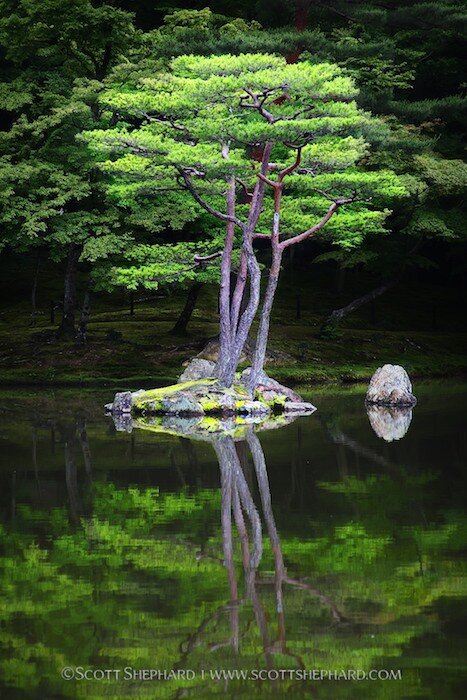 I'll have to admit that I like this photo, which isn't something I'm inclined to say about my work. A photo should speak for itself, I guess.But I like this one because it's green, and South Dakota is anything but green right now. I also like it because I rescued it from the virtual dumpster. Finally, I like it because it helps me see the value of software processes in a photographer's work flow. I don't want to get technical in today's post but I will say that I started with this image (click), and ended up with the "adjusted" version in the blog. They say you can't fool Mother Nature. But she can be enhanced. :-)Kinkankuji is otherwise known as the Golden Pavilion, which is near/in Kyoto, Japan. Here's a satellite view (click) of the location. I wish I could tell you exactly where I was standing when I took this, but I wasn't in to GPS fixes in 2004, when we visited Japan
I'll have to admit that I like this photo, which isn't something I'm inclined to say about my work. A photo should speak for itself, I guess.But I like this one because it's green, and South Dakota is anything but green right now. I also like it because I rescued it from the virtual dumpster. Finally, I like it because it helps me see the value of software processes in a photographer's work flow. I don't want to get technical in today's post but I will say that I started with this image (click), and ended up with the "adjusted" version in the blog. They say you can't fool Mother Nature. But she can be enhanced. :-)Kinkankuji is otherwise known as the Golden Pavilion, which is near/in Kyoto, Japan. Here's a satellite view (click) of the location. I wish I could tell you exactly where I was standing when I took this, but I wasn't in to GPS fixes in 2004, when we visited Japan
Ancient Doors
A Beautiful Place
 In light of current events in Japan, I went back to my collection of photos. I hadn't really looked closely at this one before but I like it because the place conveys the kind of beauty and peace I found in many locations while visiting Japan. The images of destruction in Japan are wrenching. We might find comfort in the beauty of the Japanese landscape and character, but where do the Japanese go? Memory and photos will hardly suffice in the days and weeks to come.
In light of current events in Japan, I went back to my collection of photos. I hadn't really looked closely at this one before but I like it because the place conveys the kind of beauty and peace I found in many locations while visiting Japan. The images of destruction in Japan are wrenching. We might find comfort in the beauty of the Japanese landscape and character, but where do the Japanese go? Memory and photos will hardly suffice in the days and weeks to come.
Pondering the Imponderable
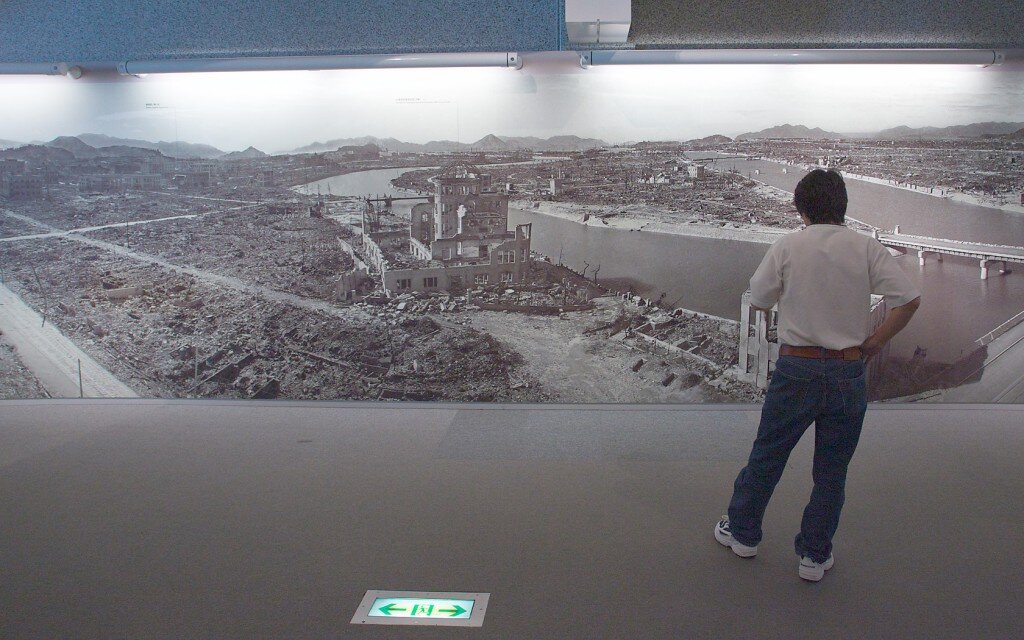 This is a candid shot taken by an American photographer of a Japanese man studying a diorama of the destruction done by the atomic bomb to Hiroshima during WWII.Did I ever feel out of place while visiting Hiroshima? No. Did I feel any enmity from the Japanese I sometimes stood next to when I was at the Hiroshima Museum that day? No.I can't say how the Japanese man pictured here felt about United States' role in the destruction portrayed. But I do know that the Hiroshima Museum stands in part as a warning and as a lesson. The Museum and the Peace Center seem to say, "Here's what one relatively small bomb did. How can we prevent it from happening again?"I was uncertain about visiting Hiroshima. But I'm glad we did. . .
This is a candid shot taken by an American photographer of a Japanese man studying a diorama of the destruction done by the atomic bomb to Hiroshima during WWII.Did I ever feel out of place while visiting Hiroshima? No. Did I feel any enmity from the Japanese I sometimes stood next to when I was at the Hiroshima Museum that day? No.I can't say how the Japanese man pictured here felt about United States' role in the destruction portrayed. But I do know that the Hiroshima Museum stands in part as a warning and as a lesson. The Museum and the Peace Center seem to say, "Here's what one relatively small bomb did. How can we prevent it from happening again?"I was uncertain about visiting Hiroshima. But I'm glad we did. . .
The Orange Temple
8:15 am, August 6, 1945
 Today's photograph isn't all that remarkable. But the artifact in the photo is. This watch was being worn by a Hiroshima resident on the day the first atomic bomb was dropped. The watch survived the bomb blast but it quit working at the precise time the bomb detonated - 8:15 am. You can find this watch in the Hiroshima Peace Memorial Museum but I can't tell you what happened to the person wearing it.We visited Hiroshima in 2004 on our trip to Japan. Our son, Brian, took us there and I'm glad he did. The day we were there, we were sourrounded by Japanese citizens visiting this historic site and the memorial erected there. You would think that Americans might not be welcome at the bomb site and the museum. But that wasn't the case, largely because the memorial grounds house a peace center that aims to eliminate nuclear weapons. And I'm sure the Japanese are more than eager to welcome us to this cause.
Today's photograph isn't all that remarkable. But the artifact in the photo is. This watch was being worn by a Hiroshima resident on the day the first atomic bomb was dropped. The watch survived the bomb blast but it quit working at the precise time the bomb detonated - 8:15 am. You can find this watch in the Hiroshima Peace Memorial Museum but I can't tell you what happened to the person wearing it.We visited Hiroshima in 2004 on our trip to Japan. Our son, Brian, took us there and I'm glad he did. The day we were there, we were sourrounded by Japanese citizens visiting this historic site and the memorial erected there. You would think that Americans might not be welcome at the bomb site and the museum. But that wasn't the case, largely because the memorial grounds house a peace center that aims to eliminate nuclear weapons. And I'm sure the Japanese are more than eager to welcome us to this cause.
A Lion In Stone
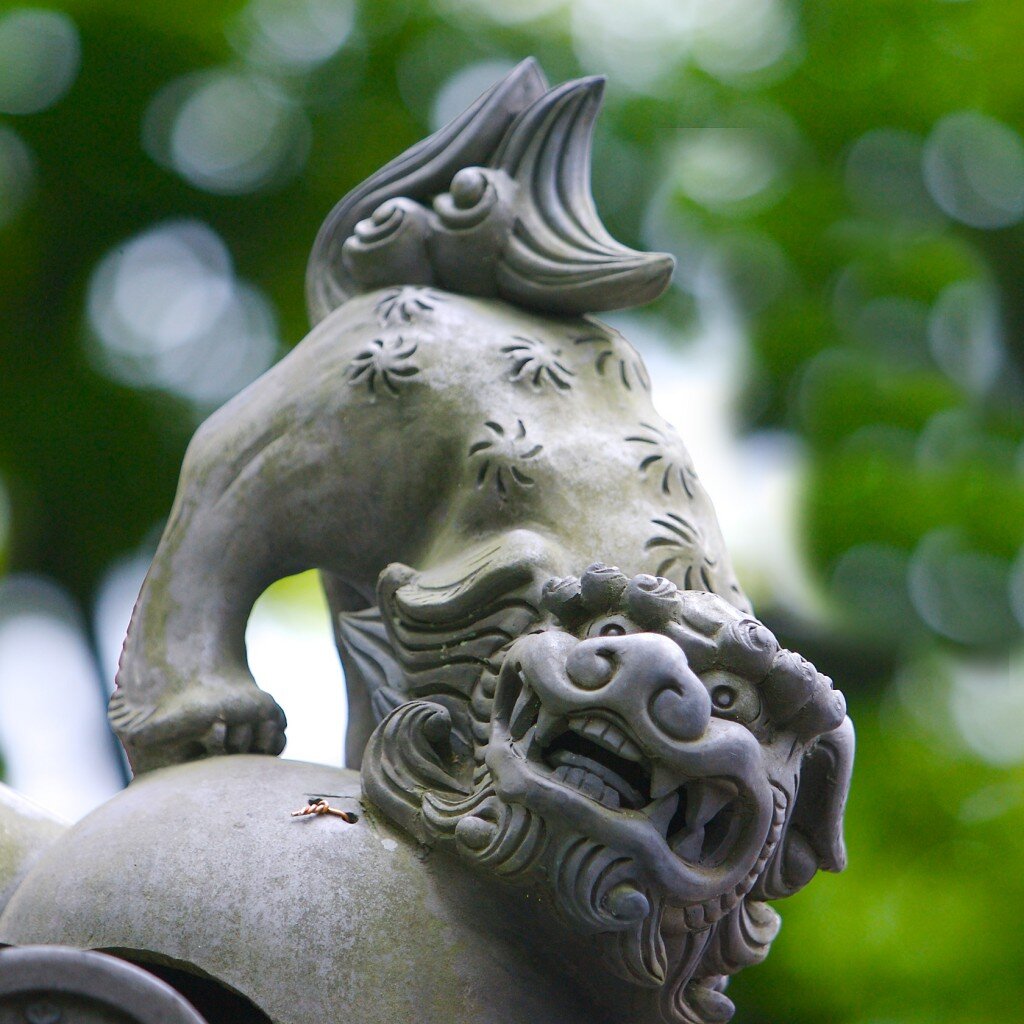 This is another photo that has sat neglected in my collection of 60,000 photos. The photo was taken in Japan in the same vicinity as the tree root photo from yesterday, which I think is near the Golden Temple. But I don't know where I am. I suppose a more disciplined photographer would keep track of things like that.
This is another photo that has sat neglected in my collection of 60,000 photos. The photo was taken in Japan in the same vicinity as the tree root photo from yesterday, which I think is near the Golden Temple. But I don't know where I am. I suppose a more disciplined photographer would keep track of things like that.
Sinuous
A Colorful Wish
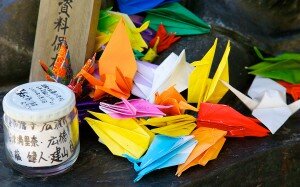 Ten years after the bombing of Hiroshima, a young girl named Sadako Sasaki died of leukemia as a result of radiation from the nuclear bomb that was dropped on her city. But before she died, she folded nearly 1000 origami paper cranes. Legend had it that if you folded 1000 paper cranes, you would be granted a wish. Her wish, of course, was to be healthy again so she could run and play with the other children.Sadly, she died. But her story became famous and today the origami crane is a symbol of international peace. This photo was taken at Hiroshima. But not too long ago I walked into a geography classroom in my school in Watertown, SD, and hanging from the ceiling was a multitude of colorful paper cranes.The Hirsoshima Peace Memorial wasn't on my list of things to see when we visited Japan a few years ago but our son Brian insisted that we go. I'm glad we did. Interestingly, I am moved more now when I look at the photos I took than I was when I was taking them. But at that time, I didn't know the story of Sadako Sasaki.Here's a view of of the monument that houses the eternal flame, with the famous Genbaku Dome in the background. Click here for a bird's eye view.
Ten years after the bombing of Hiroshima, a young girl named Sadako Sasaki died of leukemia as a result of radiation from the nuclear bomb that was dropped on her city. But before she died, she folded nearly 1000 origami paper cranes. Legend had it that if you folded 1000 paper cranes, you would be granted a wish. Her wish, of course, was to be healthy again so she could run and play with the other children.Sadly, she died. But her story became famous and today the origami crane is a symbol of international peace. This photo was taken at Hiroshima. But not too long ago I walked into a geography classroom in my school in Watertown, SD, and hanging from the ceiling was a multitude of colorful paper cranes.The Hirsoshima Peace Memorial wasn't on my list of things to see when we visited Japan a few years ago but our son Brian insisted that we go. I'm glad we did. Interestingly, I am moved more now when I look at the photos I took than I was when I was taking them. But at that time, I didn't know the story of Sadako Sasaki.Here's a view of of the monument that houses the eternal flame, with the famous Genbaku Dome in the background. Click here for a bird's eye view.


